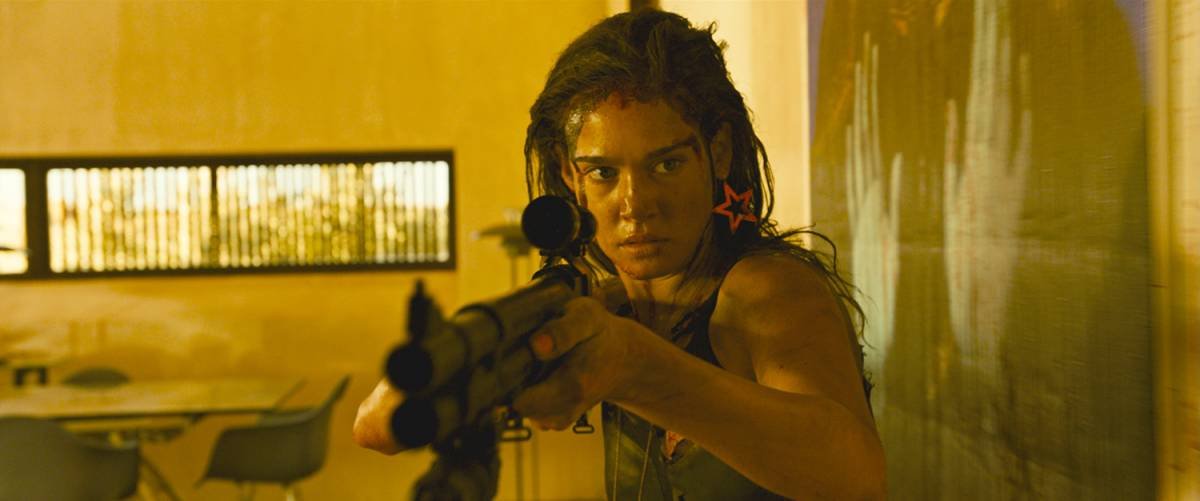It’s all there in the title. Opening Friday (May 11), Revenge is as blunt and lean as they come, pitting a single woman against the three men who left her for dead, impaled on a tree at the bottom of a desert canyon. It’s also an exercise in high style, shot in hot ochre and cool blue, with its near-mute protagonist stalking her prey like an avenging immortal in bikini underwear, stripping the power from these men bit by gory bit. (And, sensationally, allegedly sending one patron into a faint when the film went megabuzz at TIFF’s Midnight Madness screening last year.)
Talking to the Straight from Los Angeles, French filmmaker Coralie Fargeat name-checks Kill Bill, Mad Max, and Duel as movies that worked the archetypal turf she was aiming for with her debut feature. “Phantasmagoric movies which really create a very strong character together with a very powerful metaphoric scenery,” she says. “The idea of the desert really was to take the story out of mere reality and also to create some kind of artistic filter for the violence. I thought that the desert would be a perfect metaphor and mirror for what’s going on in the minds of the characters. They’re becoming more and more wild, they are more and more alone, far from civilization, far from humanity, and connecting with a more visceral part of themselves. So the landscape could really reflect the soul of the movie. It was a perfect match.”
The setup here is that Jen, played with a perfect kind of weightless determination by Matilda Lutz, has been shipped to a remote modernist compound as the mistress of ultrawealthy libertine Richard (Kevin Janssens). When his two hunting buddies show up for their annual desert killfest, it’s assumed she’s there for the taking, and things get extremely nasty. It gives nothing away to mention that one of these men is, rather potently, completely nude and leaking gallons of blood by the time he finds himself in Jen’s crosshairs. Besides this “traditional reverse of always showing the girl naked and not the guy”, it becomes impossible to ignore the looming presence of seminal rape-revenge flicks like 1978’s I Spit on Your Grave, which Revenge trounces in terms of the graphic violence inflicted on its characters. You won’t see a bloodier film this year. But the director is quick to make a distinction.
“It’s really just a revenge movie,” she says, pointing out that the sexual abuse, when it comes, is barely depicted at all. The sequence derives its power from the unbearable tension that precedes it and the appalling indifference to Jen’s suffering that follows.
“So for me, the rape scene isn’t the core of the movie,” Fargeat says. “I think the psychological violence and the moral violence is even stronger, with the character who does nothing and is gonna put the TV on, and the guy who is gonna tell the girl that it’s her fault.”
May, 2018
